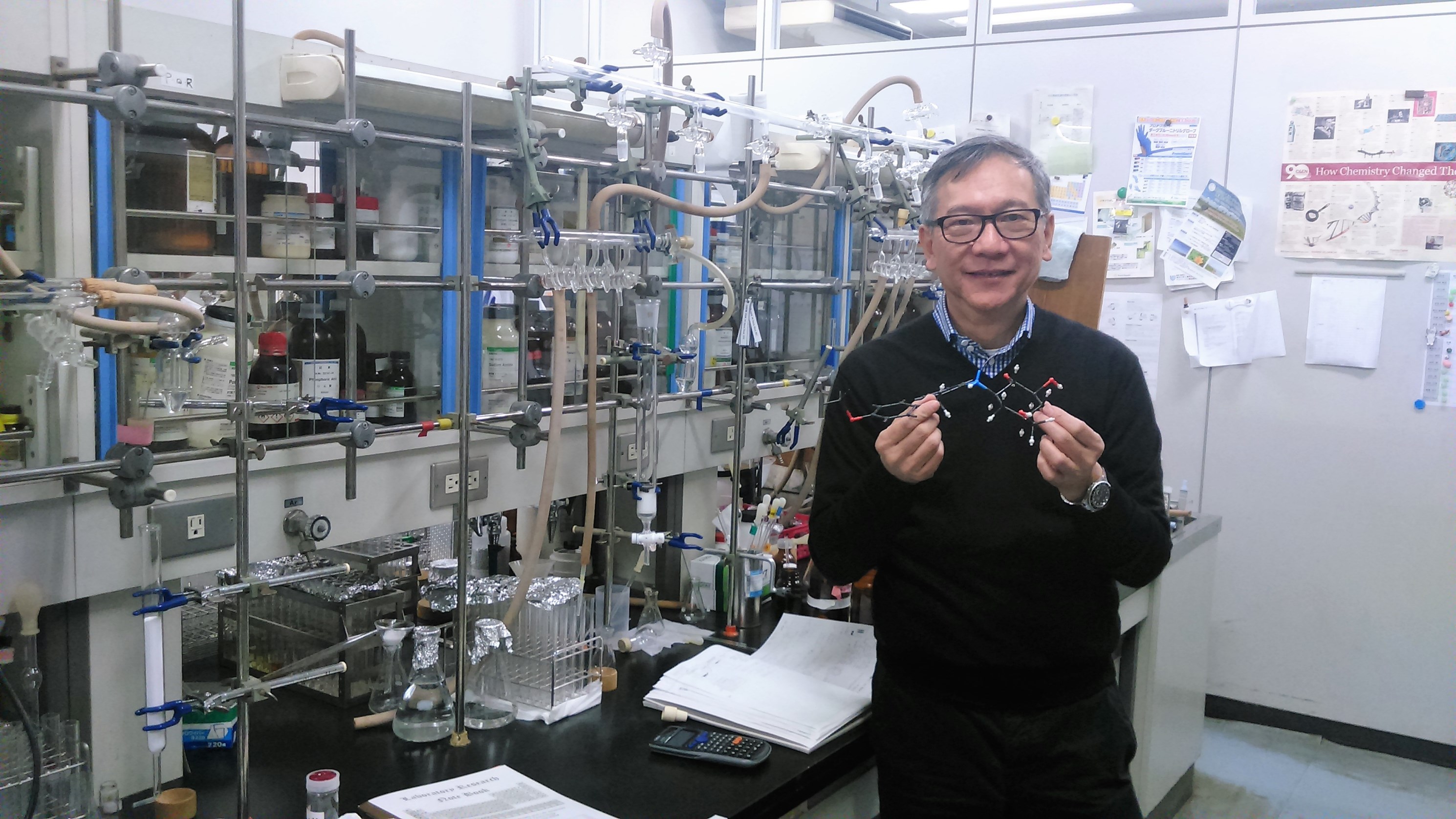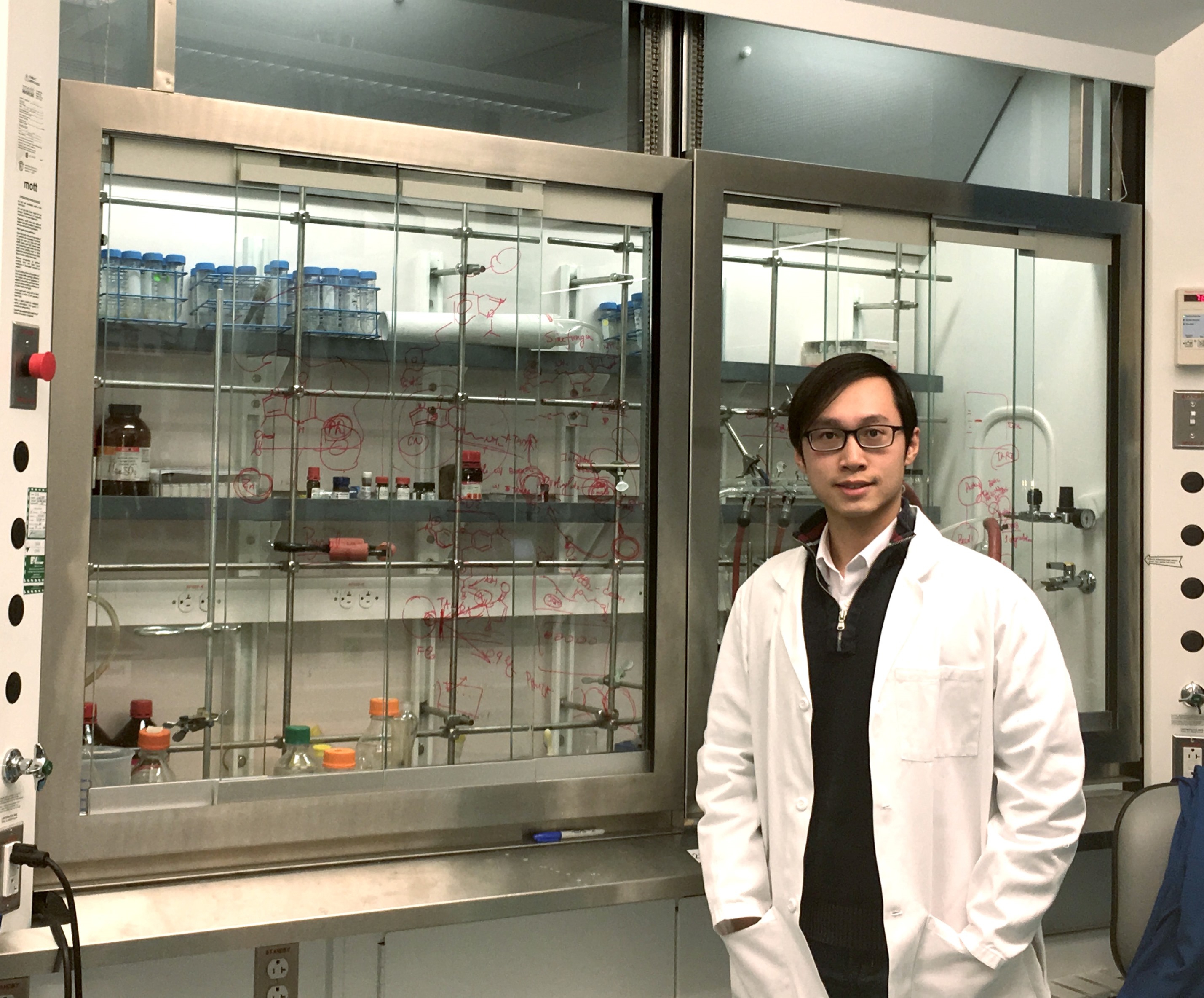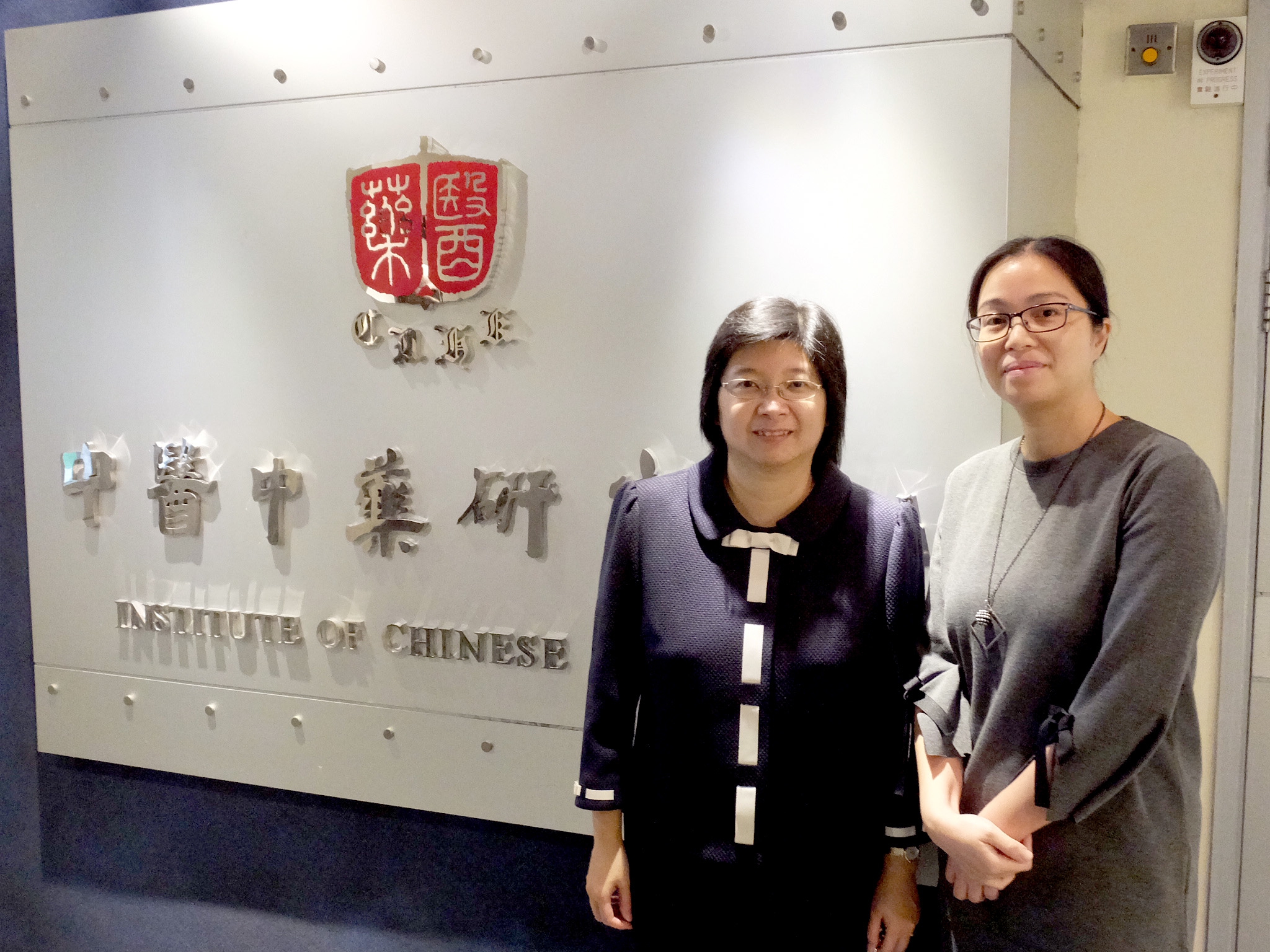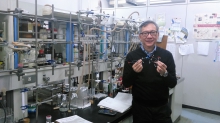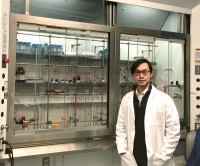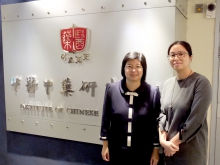CUHK
News Centre
CUHK Scientists Successfully Synthesize New Carbasugars as Antidiabetic Agents
A research team of The Chinese University of Hong Kong (CUHK) has successfully created new carbasugars as potential drug molecules to treat Type 2 diabetes. Prof. Tony K. M. Shing, Adjunct Professor at the Department of Chemistry of CUHK, together with his former PhD student Dr. Wai-Lung Ng, has successfully synthesized a series of amino-carbasugars through a novel synthetic strategy. Prof. Clara Bik-San Lau, Associate Director of the Institute of Chinese Medicine (ICM) and Associate Director of the Partner State Key Laboratory of Phytochemistry and Plant Resources in West China (CUHK), and Ms. Virginia Kit-Man Lau, Research Coordinator of ICM, have proved that some of these compounds can inhibit glucose reabsorption in kidneys, thereby demonstrating their potential as new antidiabetic agents for treating Type 2 diabetes. The finding has recently been published in a leading international chemistry journal, Angewandte. Chemie. International.
According to the International Diabetes Federation, more than 550,000 individuals in Hong Kong suffered from diabetes in 2015; the majority of them had Type 2 diabetes. Current treatments are imperfect, and are associated with many side effects. For example, the Metformin treatment may cause nausea, vomiting, and diarrhoea; while insulin therapy may cause low blood sugar, resulting in headache, rapid breathing, and fast heart rate. As mentioned in the ‘Global Report on Diabetes’ issued by World Health Organization (WHO) in 2016, diabetes is an important public health problem, one of the four priority non-communicable diseases targeted for action worldwide. Therefore, research and development for new treatments are needed.
Novel carbasugar inhibitors as new antidiabetic agents
Under the guidance of Professor Shing, Dr. Ng used an inexpensive and readily available raw material, gluconolactone, to create these drug-like chemical compounds. A low-cost chemical synthesis methodology was also adopted. Thus, the cost of making these compounds is remarkably low. Professor Lau and Ms. Lau from ICM demonstrated that the new compounds are very effective in inhibiting glucose reabsorption by using cellular models, with the molecular target of these compounds being sodium-dependent glucose co-transporter 2 (SGLT2). These inhibitors have a promising potential to develop as new antidiabetic agents for treating Type 2 diabetes.
One of the greatest challenges in this project was to figure out how to merge the two ‘drug fragments’ together. With the support from the Fulbright Research Award from the Lee-Hysan Foundation, Dr. Ng spent eight months at Massachusetts Institute of Technology (MIT) to acquire a state-of-the-art technology called palladium-catalysed cross-coupling reaction, which functions as a ‘molecular super-glue’ in fusing two molecular fragments together. With the essential ‘synthetic tool’ in hand, the research team was able to create the carbasugar inhibitors that they designed.
‘Synthetic chemistry is both intellectually and physically challenging. Labour-intensive work in the laboratory is unavoidable. However, the research experience has been very enjoyable and fulfilling, especially when we successfully created those new molecules with pharmaceutical values,’ said Dr. Wai-Lung Ng.
This work has been supported by the General Research Fund of the Hong Kong Research Grants Council. This research was given the ‘best poster presentation’ award at the Oxford Synthesis Conference in the UK last summer. The team has had a strong track record in antidiabetic drug discovery. In 2013, they discovered and published their results on another class of carbasugar antidiabetic agents, also in Angewandte. Chemie. International.
‘It has been a long time since we first conceived the research idea back in 2010, and we are glad to see that our research work is now recognized internationally by scientists. More importantly, we have demonstrated the potential of using chemistry to make a positive impact on healthcare applications. Persistence and out-of-the-box thinking are the keys to the success of this project,’ said Professor Shing. ‘We plan to test our novel drug candidates in mouse models of diabetes. We believe that our efforts will be translated from bench-to-bedside eventually, and benefit patients with diabetes.’
About the research team
Prof. Tony K. M. Shing is currently an Adjunct Professor at the Department of Chemistry in CUHK, also an Invited Visiting Professor in Sophia University, Tokyo, and Chairman of the Royal Society of Chemistry, Hong Kong Section. His research group has a long-standing interest in drug discovery and the invention of novel organic reactions.
Dr. Wai-Lung Ng obtained his PhD in Chemistry and BSc (first honours) in Chemistry from CUHK. He is currently a Research Fellow in Harvard Medical School and the Broad Institute of MIT & Harvard. He was a Croucher Foundation Postdoctoral Fellow in the University of Oxford, from 2014 to 2016. With a strong training in organic chemistry and chemical biology, he aims to understand the molecular mechanism that underlies cancer biology and thereby to create new molecules for cancer therapy.
Prof. Clara Bik-San Lau is currently the Associate Director of the Institute of Chinese Medicine in CUHK, as well as the Associate Director of the Partner State Key Laboratory of Phytochemistry and Plant Resources in West China (CUHK). She has a continuous interest in medicinal plants and has over 20 years’ experience in natural products research. Her main research interests include investigations into the potential anti-diabetic and anti-cancer activities of natural products.
Ms. Virginia Kit-Man Lau is currently a Research Coordinator at the Institute of Chinese Medicine in CUHK. She has been devoted to antidiabetic research for more than 15 years and would like to pursue bench-to-bedside drug development for the welfare of diabetes patients.


